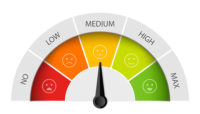Unwilling to Negotiate? Kiss that Candidate Goodbye
In a tight labor market, employers need to pull out all the stops to attract and retain top talent. One way to entice jobseekers to accept the offer is to negotiate a variety of perks, but beware: Candidates will lose interest if your company is unwilling to negotiate beyond the salary level.










